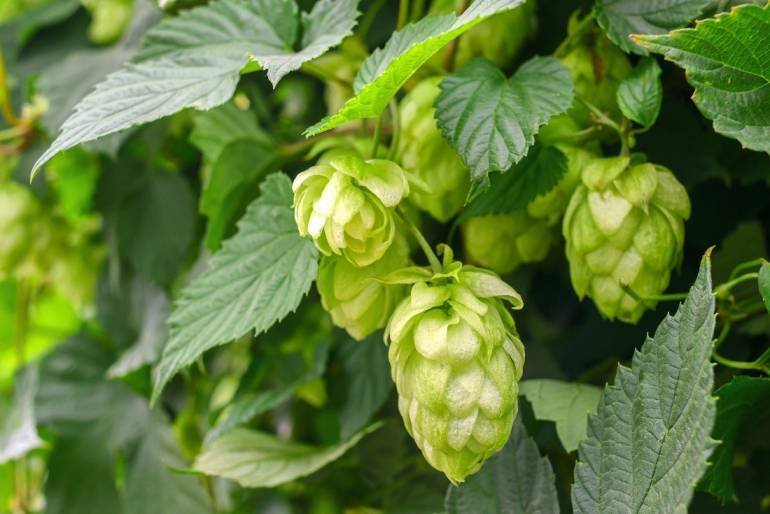Do you have a disturbing feeling that your urinary system is not functioning perfectly? Wondering how you can support its work? The most beneficial and safest way is to use preparations with plant extracts characterized by beneficial effects on the urinary system. Confirmed effectiveness in supporting the work of the urinary system and a guarantee of safety are certainly the characteristics of Bilberry.
Phytotherapy
Phytotherapy is otherwise known as herbalism, a form of therapy for all sorts of diseases using herbs (products of plant origin). Phytotherapy is also the production of herbal medicines from plants, with proven medicinal properties. It seems that natural products should not harm health, but is this always the case? Due to the fact that plant extracts are characterized by specific effects on the human body, they require numerous studies (just like drugs). First of all, a plant product should have proven therapeutic efficacy, based on a specific mechanism of action. In addition, it must be subject to studies that take into account its metabolic processes in the body, possible side effects, including toxicity. The manufacturer of the drug should also specify the optimal dosage of the preparation and inform about possible effects on the metabolism and action of other drugs (drug interactions). Thus, we have a guarantee that when we buy a drug based on plant extracts in a pharmacy, it is safe and effective.
Urinary tract ailments
Urinary problems are usually observed only when they are already in an advanced stage giving alarming symptoms. This is because the initial stages of urinary tract diseases are asymptomatic, so they are rarely detected.
The most common complaints of the urinary system are infections, inflammation of the organs, and kidney stones. Due to differences in the structure of the urinary tract, usually women are more likely to experience urinary complaints. The main difference in the structure of the urinary systems of men and women is the length of the urethra. Women have a much shorter urethra, which consequently makes it easier for bacteria to penetrate the bladder. In addition, the proximity of the urethra and the entrance to the vagina can promote frequent irritation of the urethra, during sexual contact.
What factors can contribute to urinary tract ailments?
We have already mentioned anatomical considerations (regarding body structure). However, it should not be forgotten that men also suffer from various urinary ailments, for which the “health” of the prostate is not insignificant. Prostate hypertrophy, like the presence of stones in the kidneys, causes obstruction to the free flow of urine from the bladder to the urethra. Too much stagnant urine creates a “friendly” environment for bacteria to grow. Like all infectious diseases, urinary tract infections develop more quickly if we have weakened immunity. Urinary tract infections often affect people with diabetes, as well as those with a malformed urinary tract. Catheterization, that is, the placement of a catheter in the urinary tract, usually after procedures performed on the urinary tract (and more), is also not insignificant. It’s hard not to mention proper hygiene of intimate areas, for both men and women. Avoidance of hygienic procedures consequently leads to the accumulation of bacteria and their easier penetration through the urethra, ureters and bladder towards the kidneys.
Does age matter?
Yes. It has been observed that the elderly are far more likely to suffer from urinary tract diseases. In the case of women, it is possible that the causes of urinary complaints are untreated infections, weakened immunity, concomitant diseases, or poorer attention to hygiene. For men, in addition to the factors mentioned above, urinary complaints are the result of the prostate’s tendency to hypertrophy.
Bilberry – how does it improve urinary tract function?
Blueberry (from the Latin Vaccinium vitis idaea), also known as red huckleberry, is a plant we have certainly seen more than once. It comes in the form of low shrubs, with numerous red fruits, gathered in “bunches.”
Both fruits and leaves of bilberry are used in medicine. The fruits are used for dietary purposes. The addition of lingonberry fruits (in natural or processed form) improves the process of food digestion. The leaves, on the other hand, due to their content of numerous compounds with therapeutic effects (including mainly glycosides, organic acids, tannins, anthocyanins and vitamins) are used in the treatment of urinary tract diseases.
Blueberry leaf extract is characterized by diuretic, antiseptic (disinfectant), anti-inflammatory, astringent and anti-diarrheal effects. The diuretic and disinfectant effect is particularly important in the treatment of urinary ailments, especially kidney stones, and inflammation of the urinary tract, including cystitis. The beneficial effects of bilberry leaf extract are also often used in the treatment of painful urination. However, lingonberry leaf extract should not be used continuously, as one of its components (hydroquinone) can irritate the kidneys.
The astringent effect mentioned above is used in the treatment of diarrhea. The anti-diarrheal effect is due to the presence of so-called tannins, substances capable of shrinking the mucous membranes of the gastrointestinal tract. Thanks to the use of bilberry leaf extract, additionally, the harmful effects of toxins present in the digestive tract, which are often the cause of diarrhea.
Cowberry – is it better than cranberry?
It is known that the most common ailment of the urinary system, is kidney stones, or more specifically, oxalate stones. Usually it is the presence of stones in the kidneys that prompts us to try to “flush” or “dissolve” them. In the case of oxalate nephrolithiasis, the use of cranberries is not recommended. On the other hand, it is blueberry leaf extracts that are recommended.
In the case of urinary tract infections, both bilberry and cranberry may have applications, due to their anti-inflammatory and disinfectant effects.
Keep in mind that blueberry leaf extract can be used to treat diarrhea. On the other hand, blueberry fruit extract has a beneficial effect on digestion of food and thus regulation of the digestive system.
Which Blueberry preparation is worth recommending?
It is best to choose a formulation that, in addition to blueberry leaf extract, also contains other ingredients characterized by beneficial effects on the urinary tract. What additional ingredients are worth looking for? Among others, extracts of such plant raw materials as parsley root, birch leaf, bean seed, and chamomile herb. Substances that impart an alkaline reaction to the urinary tract environment (for example, potassium citrate or sodium citrate) are also not insignificant.
Parsley extract increases the amount of urine secreted, on the principle of stimulating seepage in the glomeruli and inhibiting urine reflux resorption. In addition, it has a diastolic effect, thereby facilitating the free flow of urine. Also characteristic of parsley is its windmilling and antiseptic (disinfectant) effect.
Birch leaf extract is characterized not only by its diuretic effect, but also by its diaphoretic, anti-rheumatic, detoxifying, metabolism-enhancing effects.
The bean seed also has a diuretic effect. In addition, it is characterized by its ability to lower blood sugar levels.
Chamomile herb is mainly known for its anti-inflammatory, antibacterial, decongestant and diuretic properties.
Potassium citrate and sodium citrate are substances that impart an alkaline reaction to urine. This is important due to the fact that increasing the pH of urine (its alkalinization, imparting an alkaline reaction) contributes to faster breakdown of urate stones.
Urosept – a complex drug for urinary tract ailments
Urosept is a preparation (importantly, it is a drug, not a dietary supplement) available without a prescription. Its composition includes blueberry leaf extract, parsley root extract, birch leaf extract, bean seed, chamomile herb extract, and sodium and potassium citrate. The combined use of the above plant extracts, in conjunction with urine alkalizing substances, provides comprehensive help for urinary tract ailments. Urosept being a plant-based drug is relatively safe. No side effects associated with the use of Urosept have been reported. However, it should be borne in mind that due to the presence of parsley extract, skin changes may occur with high exposure to UV rays.
How to use the drug Urosept?
Unless otherwise prescribed by a doctor – Urosept urinary tract medicine is used 3 times a day, 2 tablets each, and washed down with water. Urosept is not recommended if there is hypersensitivity to plants of the compound family (Asteraceae, formerly Compositae) or any of the components of the preparation, as well as if there is edema due to heart and kidney failure. Due to the lack of data confirming the safety of use,
is not recommended for use in children under 12 years of age.







